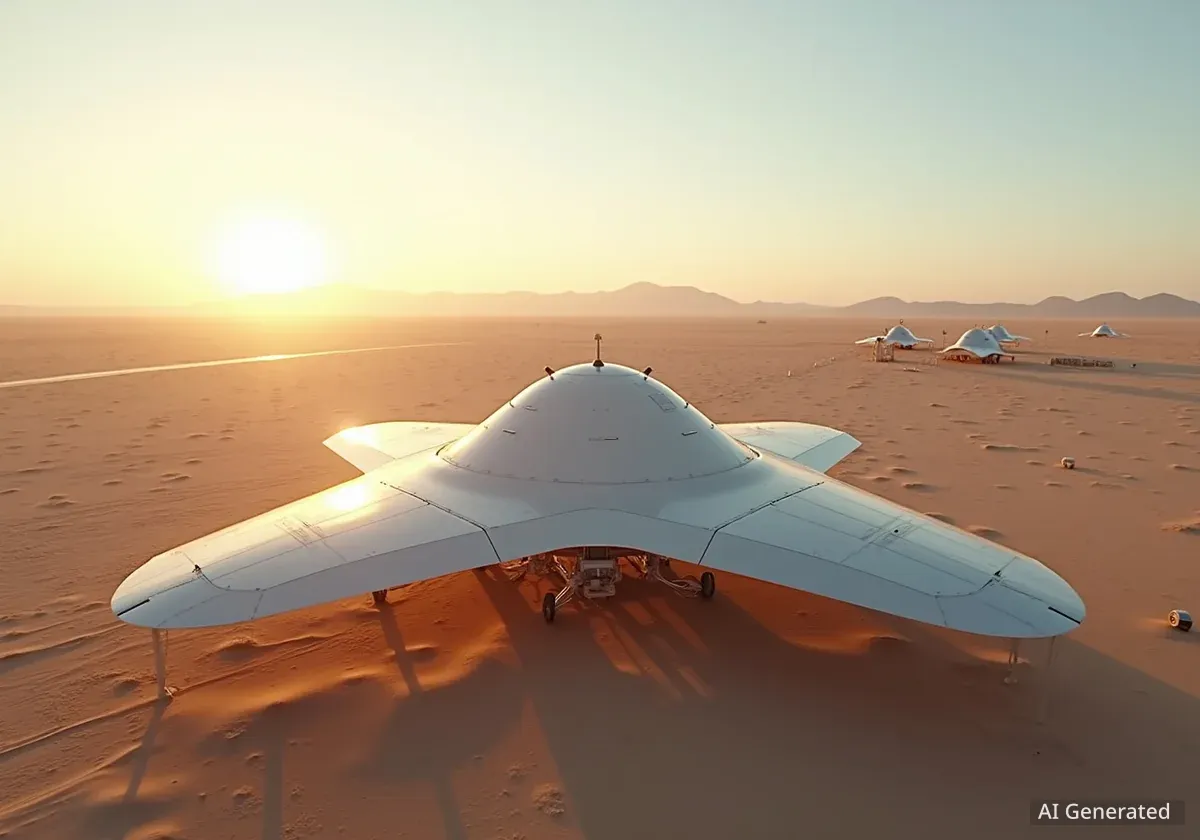Stardust Solutions, an Israeli-U.S. startup, has secured $60 million in its latest fundraising round. This significant investment aims to advance its technology for cooling the Earth by deploying reflective particles into the atmosphere. The funding marks the largest-ever for a company focused on solar geoengineering, a field that remains both promising and controversial.
Key Takeaways
- Stardust Solutions raised $60 million for solar geoengineering research.
- The funding round was led by Lowercarbon Capital and included major investors like Exor.
- The company plans to conduct controlled outdoor experiments with reflective particles in the stratosphere by April 2026.
- Critics raise concerns about the commercialization and potential risks of this untested technology.
Significant Investment Fuels Solar Geoengineering Research
The $60 million investment signals a growing interest in climate intervention technologies. This capital infusion brings Stardust Solutions' total funding to $75 million since its inception two years ago. The company, headquartered near Tel Aviv and registered in Delaware, is not affiliated with the Israeli state.
Yanai Yedvab, Stardust CEO, highlighted the investors' confidence in the concept of a "safe and responsible and controlled option for sunlight reflection." Both Yedvab and co-founder Amyad Spector are nuclear physicists with backgrounds in Israeli government work.
Funding Details
The fundraising round was spearheaded by Lowercarbon Capital, a Wyoming-based firm co-founded by billionaire investor Chris Sacca. Other prominent investors include Exor, the Dutch holding company of the Agnelli family, which holds significant stakes in Stellantis, Ferrari, and Juventus Football Club. Ten additional firms from San Francisco to Berlin, along with former Facebook executive Matt Cohler, also participated.
The Science Behind Stardust's Approach
Stardust Solutions claims to have developed a unique particle designed to reflect sunlight. This mechanism is similar to how volcanic eruptions can temporarily lower global temperatures. The company asserts that its proprietary powder is inert, will not accumulate in human bodies or ecosystems, and poses no threat to the ozone layer or risk of acid rain, unlike sulfur-rich volcanic particles.
The startup is actively pursuing patents for its integrated solar geoengineering system and preparing academic papers to detail its findings. Their goal is to secure government contracts for the manufacturing, dispersal, and ongoing monitoring of these particles in the stratosphere.
"They have convinced Silicon Valley [venture capitalists] to give them a lot of money, and I would say that they shouldn’t have," stated Gernot Wagner, a climate economist at Columbia Business School and author of “Geoengineering: The Gamble.”
Upcoming Stratospheric Experiments
With the new funding, Stardust Solutions plans to initiate "controlled outdoor experiments" as early as April 2026. These tests will involve releasing the company's reflective particles inside a specially modified aircraft. The plane will fly at an altitude of approximately 11 miles (18 kilometers) above sea level in the stratosphere.
Yedvab explained that the approach involves "sucking air from the stratosphere and to conduct in situ experiments, without dispersing essentially." This method aims to study the particles' behavior without widespread release. The company emphasized that it sought only the necessary funding for these initial stratospheric tests, aligning with its cautious development strategy.
A Growing Field Amid Climate Crisis
The surge in investor interest for solar geoengineering companies like Stardust comes as global temperatures continue to rise, leading to more frequent and severe wildfires, floods, and droughts. These events highlight the urgent need for solutions to climate change, even as political efforts to reduce fossil fuel use face ongoing challenges.
Ethical and Commercialization Concerns
Despite the enthusiasm from investors, the commercialization of solar geoengineering technologies raises significant questions. Critics argue that involving venture capital firms in this largely untested and unregulated field could lead to unintended consequences, including disruptions to global weather patterns and potential geopolitical conflicts.
Concerns also revolve around the potential for a for-profit company to drive such a critical global technology. Gernot Wagner questioned the viability of a scenario where governments would purchase intellectual property from a private entity for billions of dollars. He suggested this path may not be reasonable for a technology with such global implications.
The debate underscores the tension between rapid technological innovation and the need for thorough research, regulation, and ethical considerations in addressing climate change. As Stardust Solutions moves forward with its experiments, the world will be watching closely to see how this ambitious approach unfolds.
- Future Ventures
- Never Lift Ventures
- Starlight Ventures
- Nebular
- Lauder Partners
- Attestor
- Kindred Capital
- Orion Global Advisors
- Future Positive Capital
- Earth.now





